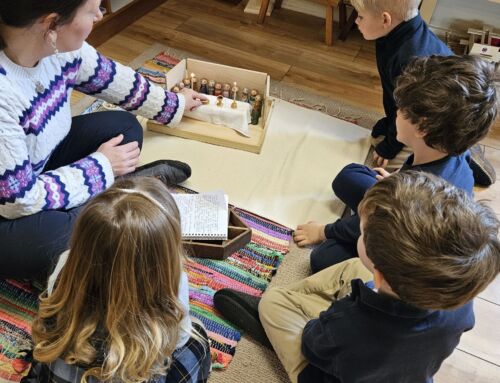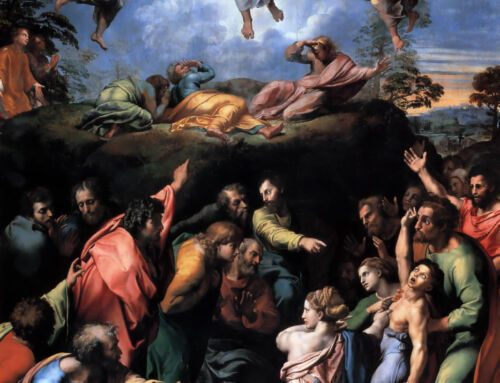Today is the feast day of one of the four female Doctors of the Church: St. Catherine of Siena. St. Catherine is also the patron of one of our Houses of Faith here at St. Benedict Classical Academy. She was a woman filled with the grace of the Holy Spirit, who worked ceaselessly for the good of God’s people, and played an essential role in returning the Chair of St. Peter to its rightful place in Rome.
But there is another saint and another feast day I wish to focus on: the feast of St. Joseph the Worker, which we will celebrate this week on May 1st.
Work is an integral part of human life. It is how we feed ourselves and clothe ourselves. It is how we learn and grow. In short, it is how we survive. However, work is not something merely utilitarian, or only a result of man’s departure from the Garden of Eden.
When we read the account of man’s creation in the book of Genesis, we see that work was not given as a punishment to man after his Fall, but was given beforehand as man’s proper activity, as a gift to him. Reflecting on this, St. Josemaria writes, “Work is man’s original vocation. It is a blessing from God, and those who consider it a punishment are sadly mistaken. The Lord, who is the best of fathers, placed the first man in Paradise ut operaretur, so that he would work.” (St. Josemaria Escriva, Furrow, p. 191)
Even after the Fall, work remains a gift and a privileged activity of man. God Himself became man in the form of Jesus Christ, working under his carpenter father St. Joseph for most of his life. Fr. Calloway, author of Consecration to St. Joseph, says of the Incarnation: “When he became flesh, Jesus sanctified human work and elevated it to a level of greatness that did not exist prior to his Incarnation. Though divine, God humbled himself, became a man, and worked like a man.” (Fr. Donald Calloway, Consecration to St. Joseph, p. 59)
Through the Incarnation, we are able to unite our work with Christ’s and sanctify it, no matter how toilsome our work may be. When we work well–with care, attention, and joy–we are imitating Christ. What a beautiful gift this is! And how else could Jesus have learned to work well besides imitating his earthly father, St. Joseph!
One essential aspect of working well that our culture has lost is the proper role of work in our lives. Work is a good and necessary part of life, but it is not meant to be all-consuming. St. Joseph, saint as he was, would have known how to balance all the facets of life. He worked diligently at the tasks appointed to him, but he also made time for prayer and for his family. He had rest and recreation, recognizing their importance both in order to work well and as things good for their own sakes.
Here in our Early Learning Program at SBCA, we strive to have this balance in our Montessori-inspired classrooms. The activities the children choose are appropriately called “work”, and much of their school day is dedicated to such work. But we also give them time to rest, socialize, and play. These needs do not go away when we grow up, nor does God intend them only for youth. Like Jesus, we ought to model ourselves after St. Joseph, uniting our work with God’s will and giving it its proper place alongside all the other good and beautiful things in this life.
St. Joseph the Worker, ora pro nobis!
St. Catherine of Siena, ora pro nobis!
AUTHOR: Rose Dussault, Early Learning Program Assistant Teacher








